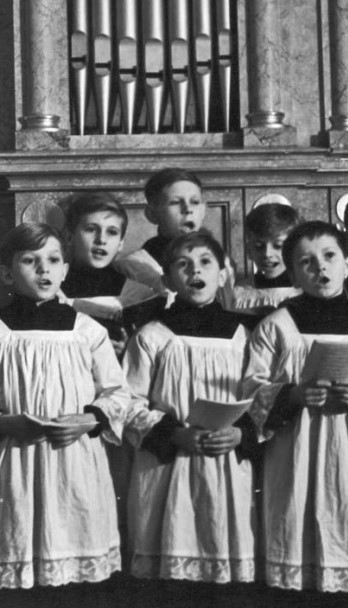He worried about his sister during the war and his children in 1968

Stáhnout obrázek
Pavel Mejsnar was born in Dolní Štěpanice on 15 May 1936 as the last of four children. His father spent World War I in combat in Galicia. The family found it very difficult when a German farmer reported his sick sister Marie to authorities for feigning sickness during her total deployment. Marie was kept in prison in Vrchlabí for one year without her family knowing anything about her. The witness experienced a great deal of fear again at the end of the war when members of the Vlasov army took his brother Pepík (Josef) away for a brief period. Later on, his brother started running a farm left behind by deported Germans. The communists took a part of his property away in the 1950s because he was the only farmer far and wide who would not join the cooperative. Pavel Mejsnar left for Prague to study at a grammar school at age 11, and composer Miroslav Venhoda admitted him to his choir, Schola cantorum. He witnessed the deportation of the monks from the monastery in 1950. After 1950, he joined a vocational school in Mladá Boleslav, got a toolmaker training, and wanted to continue studying at a technical high school. He was not allowed to, however, due to his poor ‘cadre profile’. Instead, he joined the Škoda plant in Vrchlabí and stayed on board for more than 50 years. During his military service, he was on duty during the Hungarian uprising (1956) and guarded the Slovak border with Hungary. He experienced the same concerns of mobilisation during the Warsaw Pact invasion in 1968. He refused to join the CPC several times. Not being a communist party member, he would not be promoted at work. Following 1989, he embraced Škoda’s expansion into the western markets and the new approach of the management following the merger of Škoda with the Volkswagen Group. He and his wife brought up four children and now they get to spend time with 11 grandchildren. They were living together in Vrchlabí in 2023. We were able to record the witness’s story thanks to support from the ŠKODA AUTO Endowment Fund.











